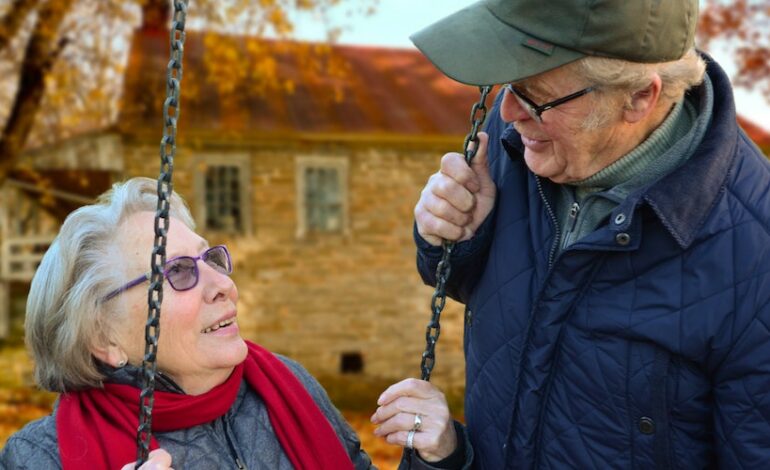When A Husband Dies Does The Wife Get His Social Security Disability?
If a husband who was receiving Social Security Disability benefits passes away, his surviving spouse may be eligible to receive survivor benefits based on his work record.
The amount of benefits the surviving spouse is entitled to receive will depend on a number of factors, including the deceased husband’s earnings history, the age at which the surviving spouse begins receiving benefits, and whether the surviving spouse is receiving other Social Security benefits, such as retirement benefits or her own disability benefits.
To be eligible for survivor benefits, the surviving spouse must generally be at least 60 years old (50 years old if disabled) or caring for a child who is under the age of 16 or disabled. The surviving spouse must also have been married to the deceased husband for at least nine months, although there are exceptions in certain cases, such as if the death was due to an accident.
It’s important to note that the Social Security Administration has specific rules regarding eligibility and benefit calculations for survivor benefits. If you have questions about your specific situation, you should contact the Social Security Administration or a qualified attorney who specializes in Social Security law.
Widows Are Eligibility For Social Security Disability Benefits
If a widow or widower is disabled, they may be eligible to receive Social Security Disability benefits based on their own work history or the work history of their deceased spouse.
To be eligible for Social Security Disability benefits, the widow or widower must have a medical condition that meets the Social Security Administration’s definition of disability. This means that the condition must be severe enough to prevent the individual from performing substantial gainful activity (SGA) for at least 12 months or result in death.
In addition to meeting the disability requirements, the widow or widower must have worked enough to earn sufficient credits under the Social Security system. The number of credits required will depend on the individual’s age at the time they became disabled or the age of their deceased spouse.
If the widow or widower is under the age of 50, they will generally need to have worked for at least 1.5 years in the three-year period prior to becoming disabled or passing away. If they are between the ages of 50 and 60, they will generally need to have worked for at least seven years. If they are over the age of 60, the number of years required will vary depending on their age and the work history of their deceased spouse.
It’s important to note that eligibility for Social Security Disability benefits can be complex and depend on a variety of factors. If you are a widow or widower and think you may be eligible for benefits, you should contact the Social Security Administration or a qualified attorney who specializes in Social Security law for guidance.
Who Is Eligible for Survivor Disability Benefits?
Survivor Disability Benefits (also known as Disabled Widows/Widowers Benefits) are a type of Social Security benefit that is available to certain individuals who become disabled after the death of their spouse. To be eligible for these benefits, you must meet the following criteria:
- Be the widow or widower of a deceased individual who was fully insured for Social Security benefits.
- Be at least 50 years old and have become disabled within a certain period of time after the death of your spouse. Specifically, you must have become disabled within seven years of your spouse’s death, or within seven years of the last day you were entitled to a mother’s or father’s benefit based on the work record of your spouse.
- Have a disability that meets the Social Security Administration’s definition of disability. This means that your condition must be severe enough to prevent you from performing substantial gainful activity (SGA) for at least 12 months or result in death.
It’s important to note that survivor disability benefits are only available to widows and widowers who are disabled and cannot work. If you are able to work and earn income, you may not be eligible for these benefits. Additionally, eligibility for these benefits can be complex and depend on a variety of factors, including your work history and the work history of your deceased spouse. If you think you may be eligible for survivor disability benefits, you should contact the Social Security Administration or a qualified attorney who specializes in Social Security law for guidance.
Can I Collect My Deceased Spouse’s Disability Benefits Along With My Social Security
If you are the surviving spouse of a deceased individual who was receiving Social Security Disability benefits, you may be eligible to receive survivor benefits based on their work record. These survivor benefits can be received in addition to your own Social Security retirement or disability benefits, but the total amount of benefits you receive may be subject to certain limitations.
The amount of survivor benefits you are eligible to receive will depend on a number of factors, including the deceased spouse’s earnings history, the age at which you begin receiving benefits, and whether you are receiving other Social Security benefits.
In general, if you begin receiving survivor benefits before you reach full retirement age, the benefits may be reduced based on your own earnings. If you earn income over a certain limit, your survivor benefits may be reduced or suspended. However, once you reach full retirement age, your survivor benefits will no longer be reduced based on your earnings.
It’s important to note that the rules regarding survivor benefits can be complex, and the amount of benefits you are eligible to receive may depend on a variety of factors. If you are the surviving spouse of a deceased individual and have questions about your eligibility for survivor benefits, you should contact the Social Security Administration or a qualified attorney who specializes in Social Security law for guidance.


